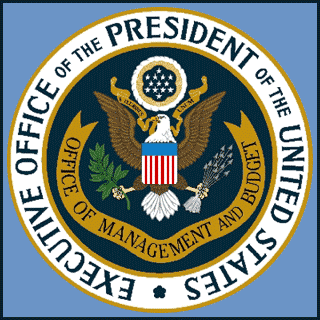 57 years ago – January 15, 1955 – President Dwight Eisenhower promulgated a federal policy that is a relevant today as it was the day it was issued, if not more so.
57 years ago – January 15, 1955 – President Dwight Eisenhower promulgated a federal policy that is a relevant today as it was the day it was issued, if not more so.
Bureau of the Budget Bulletin 55-4 stated, “The Federal government will not start or carry on any commercial activity to provide a service or product for its own use if such product or service can be procured from private enterprise through ordinary business channels.”
While that document still exists, now found in Office of Management Budget Circular A-76, the policy statement was removed by the Bush Administration in 2003. The current A-76 calls for public-private cost comparisons to determine whether federal employees or private contractors should carry out governmental activities that are commercial in nature.
Regrettably, even that common sense proposition is now dead. Congress enacted a provision in the recent “megabus” appropriations bill to prohibit agencies from beginning or announcing “a study or public-private competition regarding the conversion to contractor performance of any function performed by Federal employees pursuant to Office of Management and Budget Circular A–76 or any other administrative regulation, directive, or policy.”
More than 850,000 federal employees are engaged in commercial activities that duplicate and in some cases compete with private enterprise, including small business. Ranging from architecture to zoology and including audits, buses, construction, debt and bill collections, engineering, equipment repair and maintenance depots, food service, furniture, information technology, laboratories, landscaping, laundry and dry cleaning, office products, mapping, meeting planning, marketing research, roofing, motorcoaches, printing, public storage, surveying, tax preparation, transportation and utilities. A government that does virtually everything that can be found in the Yellow Pages is simply too big to succeed.
Further compounding the problem is the Obama Administration’s implementation of “insourcing,” converting work previously carried out by contractors into agencies for performance by federal employees. Ostensibly designed to save money, then-Defense Secretary Robert Gates backed off of insourcing when such savings were not realized.
Jacques Gansler, undersecretary of defense for acquisition, technology and logistics in the Clinton Administration said it best. “The surest way to reduce and hold down procurement costs is through competition, whether among commercial providers or between commercial providers and in-house government alternatives. For the latter cases, no matter who wins, the savings have been more than 30 percent.”
Or, as former New York governor Mario Cuomo once said, “It is not a government’s obligation to provide services, but to see that they are provided.”
In Virginia, progress made in the past has been stymied. The Commonwealth Competition Council (CCC) created under administration of Governor George Allen and once a model for other states, was neutered under Governors Warner and Kaine. In recent years, the CCC met just once a year, and that was to receive briefings, not to take action on lowering the cost of and improving the quality of government services or eliminating government activities that duplicate or unfairly compete with private enterprise, including small business. The CCC has become so moribund Governor McDonnell has recommended its termination in his 2012 reform initiative.
Fortunately, in its place, Delegate Jim LeMunyon (R-67th) has introduced HB 611, a bill to require the Governor examine commercial activities being performed by state employees at state agencies and institutions to ensure such activities are being accomplished in the most cost-efficient and effective manner. It requires an ongoing, annual review of commercial activities.
From the White House to the State House, it is time renew the Eisenhower policy, lower the cost of government, improve the quality of services, create private sector jobs, and focus government employees on activities and functions only government itself can perform.

Email this author
- The Most Progressive Budget in Virginia’s History - December 21, 2019
- When is a Clean Water Act Permit Needed? - December 21, 2019
- Should U.S. Consider Modern Monetary Theory to Improve Economy? - December 21, 2019
